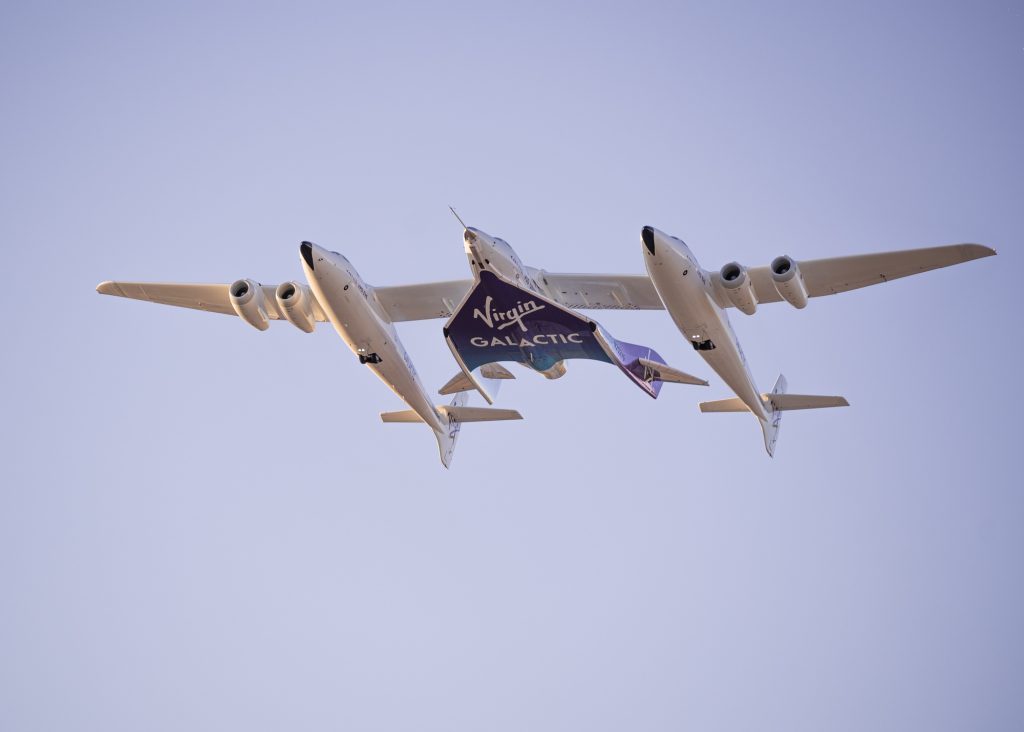WASHINGTON — Virgin Galactic plans to get shareholders' approval for a reverse stock split meant to increase the decreasing share price of the space travel company that goes to the edge of outer space.
The company made public a document on April 18 announcing its annual meeting and providing details of the proposals to be voted on at the meeting, set for June 12., The document includes the list of proposals the company will ask shareholders to vote on at the meeting.
One of the proposals will ask shareholders to agree to make changes to its certificate of incorporation to carry out a reverse stock split ranging from 1-for-2 to 1-for-20. This would change 2 to 20 existing shares of Virgin Galactic stock into one new share, with the specific ratio and timing of the reverse split to be determined by the company’s board.
The reverse split would result in an increase in the share price. Such splits are often done to follow the requirements of stock exchanges, which usually require shares to trade at prices of at least $1. Virgin Galactic shares closed at $0.97 on April 18 and traded at $0.90 earlier that day, reaching a 52-week low.
In the document, the company stated that the board supported the amendments for the reverse stock split “with the primary purpose of improving the perception of our common stock as an investment security, resetting our stock price to more normal trading levels in the face of potentially extended market disruption, and decreasing price volatility for our common stock, as small price movements currently may cause relatively large percentage changes in our stock price.”
The filing also admits that the reverse stock split would also address any concerns the stock could be delisted on the New York Stock Exchange, which requires a minimum share price of $1 over a 30-day period. “The Board intends to effect the Reverse Stock Split only if it believes that a decrease in the number of shares outstanding is in the best interests of the Company and our stockholders and is likely to improve the trading price of our common stock and improve the likelihood that we will be able to maintain our listing on the NYSE.”
The company’s share price has decreased gradually since last June, when it reached a 52-week high of about $6 a share shortly before the first commercial flight of its VSS Unity suborbital spaceplane. In November, Virgin Galactic announced it would retire Unity by mid-2024 to focus on producing its next-generation Delta-class vehicle, which the company plans to have in commercial service by 2026.
Virgin Galactic became a publicly traded company in 2019 through a special-purpose acquisition company (SPAC) merger, and its share prices reached over $50 per share at times in 2021. Other space companies that later became public through SPAC mergers, such as Astra, Momentus, and Spire, have also carried out reverse stock splits to keep their listings.









